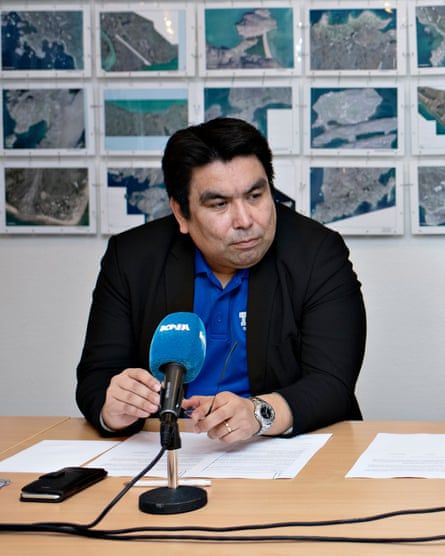Global Powers Weigh In on Greenland's Strategic Location as Climate Crisis Sets Unprecedented Arctic Pace

Niels Clemensen, the CEO of Royal Arctic Line, Greenland's only shipping company, is warning foreign investors and governments about the challenges of operating in Greenland. "Come up here and see what you are actually dealing with," he advised recently, urging those hoping to tap into the strategic location's potential to "see" the harsh realities.
Sitting on the top floor of his beamed office in Nuuk harbour, Clemensen explained that setting up operations in Greenland is much more complicated than it would be in Europe or the US. The island lacks a big road network and trains, forcing everything to be transported by sea or air. "It's not saying it's not possible, but it's going to cost a lot of money," he said.
As the Arctic ice melts at an unprecedented rate due to climate change, Greenland is set to play a crucial role in global shipping routes. The Northwest Passage, which would cut shipping times between Europe and Asia by thousands of miles, has sparked interest from world leaders, including US President Donald Trump.
However, Greenland's proximity to the highly coveted route has also highlighted its lack of icebreakers, a critical tool for operating in the Northwest Passage and other Arctic regions. Denmark, responsible for Greenland's defence, does not have any icebreaker vessels, having retired its last three in 2010.
The shift in focus towards the Arctic region among global powers is creating tension as ownership of icebreakers becomes increasingly contested. Russia, with a fleet of at least 50 icebreakers, including seven nuclear-powered ones, is already establishing dominance in the Arctic. China and other Western nations are also scrambling to develop their own icebreaker capabilities.
As Greenland's mining activities set off, icebreakers will become essential for accessing minerals in the region. However, the unpredictable weather brought by climate change threatens coastal communities that rely on fishing and hunting as their livelihoods.
Vittus Qujaukitsoq, former government minister and CEO of KNAPK, warned that depleting ice and changing weather patterns are already affecting hunting and fishing in Greenland's rural communities. "Some people think it would be a great help to have icebreakers," he said, "but not everyone, because they would ruin their way of living."
The prospect of more frequent and unpredictable openings in the sea posed a significant threat to the survival of Inuit communities that live along the shipping route, according to Qujaukitsoq.
Director of the Arctic Centre, Johanna Ikävalko, echoed Qujáukitó's concerns. "We need high-performance icebreakers," she said, "but I still consider using the Northwest Passage extremely dangerous for transporting oil or other goods."
The Arctic is set to become a crucial battleground in the battle for global economic and military power. As the world grapples with the challenges of climate change, the fate of Greenland, once a remote and inhospitable territory, hangs in the balance.
"It's even more possible" that nations will start becoming the superpowers based on future dominance in the Arctic, she warned.
The implications are far-reaching: as the Arctic pace accelerates due to climate change, global powers must consider whether they can navigate the risks and benefits of using it for energy transportation and economic growth.
